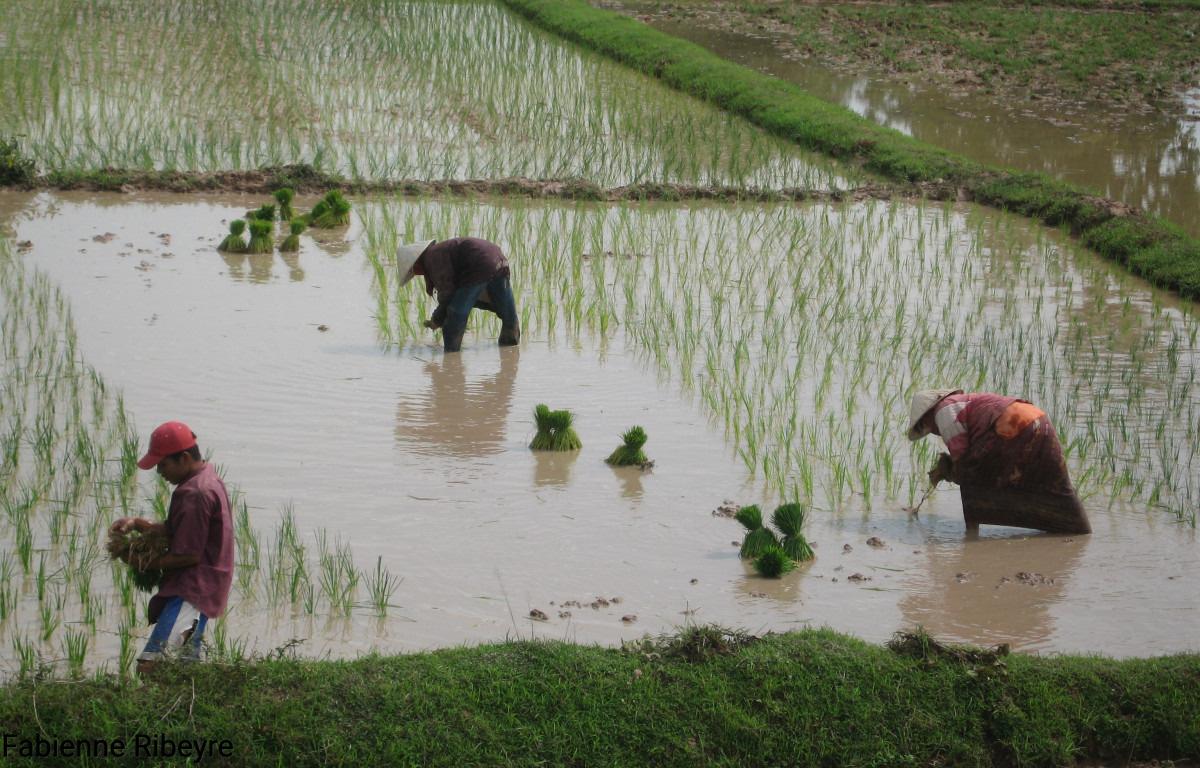
Agroecology for Southeast Asia
A network aimed at producing more while preserving resources.

Rice transplanting in Laos. © F. Ribeyre, CIRAD
In addition to the researchers posted to Laos, several support missions are carried out from France and from Thailand, notably in the field of agroecology and health.
In Laos, geographical indications serve to promote six products, including Komaen tea from 400-year-old tea bushes in Phongsaly province. This work is part of the project for the Promotion and Recognition of Geographical Indications (GI) in Cambodia, Lao PDR and Myanmar (2020-2023). The project supports the development of GI protection systems in Southeast Asia, with a regional component and three national components. The regional component focuses on institutional capacity building, experience sharing and cooperation between the three countries (Cambodia, Laos and Myanmar), and includes project coordination. The national component for Laos targets the Khao Kai Noi rice value chain in the two provinces of Xiengkhouang and Huaphan, and the Komaen tea value chain in Phongsaly province.
Voir aussi : Etude Food Systems Profile – The Lao People's Democratic Republic
CIRAD is a partner in two regional initiatives funded by the French government (Solidarity Fund for Innovative Projects - FSPI) and involving Laos.
These projects are part of the PREZODE initiative and will enable the launch of more ambitious projects.
Two other new projects are being set up and are also contributing to the PREZODE initiative.
The partners’ and CIRAD’s activities are part of several long-term research and training platforms in partnership (dPs).

A network aimed at producing more while preserving resources.

How can sustainable food supplies to urban areas be reconciled with local agricultural development?

How can we manage the emerging health risks at the interface between animals, humans and their environments?
CIRAD’s main partners are the research institutes governed by the Ministry of Agriculture and Forestry (MAF), with the University of Laos under the authority of the Ministry of Education, along with NGOs.
The main donor is AFD
CIRAD also works with the following organizations.